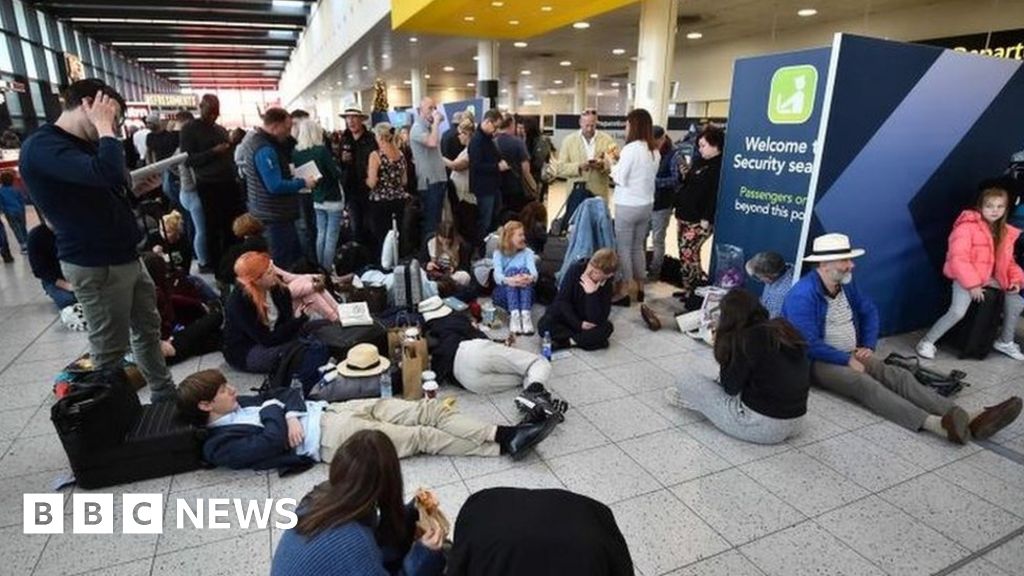EasyJet Says Drone Chaos Was 'wake-up Call' For Airports

 Image copyright
AFP
Image copyright
AFP
EasyJet has said last month's drone disruption at Gatwick was a "wake-up call" for airports.
The drones caused blanket cancellations over a number of days in December and mass passenger disruption as a result.
The airline said the drones cost it £15m in passenger compensation and lost revenues, and hit 82,000 customers.
EasyJet's chief executive, Johan Lundgren, said he was "disappointed" the airport took so long to resolve the situation and reopen the runways.
He acknowledged it was a "criminal act" and difficult to guard against.
More than 400 EasyJet flights were cancelled due to the drone sightings.
Altogether, more than 1,000 flights were grounded and around 140,000 passengers affected.
EasyJet paid out £10m in "customer welfare costs" and said it had lost £5m of revenue due to flight cancellations.
However, the carrier said it had made a good start to the financial year and was "well prepared" for Brexit.
Passenger numbers rose by 15% to 21.6 million for the last three months of 2018.
Last week, rival carrier Ryanair cut its profit forecast blaming lower-than-expected air fares.
In contrast, Easyjet said that it had seen "robust" demand from customers.
EasyJet chief executive Johan Lundgren said: "For the first half of 2019, booking levels currently remain encouraging despite the lack of certainty around Brexit for our customers.
"Second half bookings continue to be ahead of last year and our expectations for the full year headline profit before tax are broadly in line with current market expectations."
He also said he was "proud" of the way staff worked around the clock to look after customers affected by the drone incident.
Easyjet's Brexit planning includes registering 130 aircraft in Austria and building up a pool of spare parts in the EU.
It added that both the EU and the UK have committed to ensure that flights between the UK and EU will continue in the event of a no-deal Brexit.
Nicholas Hyett, equity analyst at stockbrokers Hargreaves Lansdown, said: "The drone disruption at Gatwick in December means these results aren't quite what EasyJet was hoping for at the start of the year, but it hasn't blown things too far off course.
"New planes have driven substantial increases in passengers and revenues, and the group's also getting better at selling passengers additional services - think extra leg room, priority boarding and microwaved paninis."
From Chip War To Cloud War: The Next Frontier In Global Tech Competition
The global chip war, characterized by intense competition among nations and corporations for supremacy in semiconductor ... Read more
The High Stakes Of Tech Regulation: Security Risks And Market Dynamics
The influence of tech giants in the global economy continues to grow, raising crucial questions about how to balance sec... Read more
The Tyranny Of Instagram Interiors: Why It's Time To Break Free From Algorithm-Driven Aesthetics
Instagram has become a dominant force in shaping interior design trends, offering a seemingly endless stream of inspirat... Read more
The Data Crunch In AI: Strategies For Sustainability
Exploring solutions to the imminent exhaustion of internet data for AI training.As the artificial intelligence (AI) indu... Read more
Google Abandons Four-Year Effort To Remove Cookies From Chrome Browser
After four years of dedicated effort, Google has decided to abandon its plan to remove third-party cookies from its Chro... Read more
LinkedIn Embraces AI And Gamification To Drive User Engagement And Revenue
In an effort to tackle slowing revenue growth and enhance user engagement, LinkedIn is turning to artificial intelligenc... Read more

